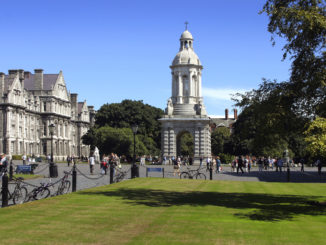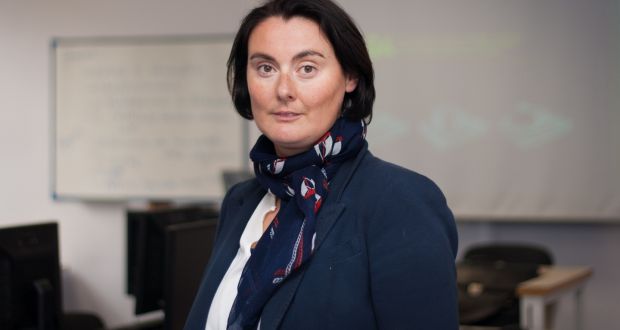
Overview:
- An emergency CRC was held last Thursday, November 17
- Class Reps voted on whether to accept the President’s interpretation of the constitution, which saw the Students’ Union Executive call two referendums
- DCUSU President Dylan Kehoe, however, said he did not make a formal interpretation of the constitution
- The motion failed and the proposed referendums will be brought back to CRC
- At present, the referendums are not confirmed to be going ahead
Two hundred and seventy students signed a petition last Thursday which forced Class Rep Council to convene for an emergency meeting, focused on the proposed changes to the Students’ Union Constitution.
The petition asked class reps to formally agree with SU President, Dylan Kehoe’s interpretation of the constitution, under which he instructed Returning Officer, Cat O’Driscoll, to call a referendum. The referendum would ask the student body to vote for or against a number of proposed changes to the SU constitution. The constitution is a legal document and ultimately provides guidelines for the Executive, Class Rep Council and the student body.
The statement put to class reps for agreement read;
“Council notes the interpretation of article 9.1.1 by the president, by action of the executive, instructing the returning officer to call a referendum on behest of the executive.Council support the president’s interpretation of this article.”
Conflict arose early last week after a decision was taken to vote on the proposed changes to the constitution at an Executive meeting, with the Returning Officer, Cat O’Driscoll, then calling a referendum.
The Executive meeting occurred after two information sessions had taken place to inform students about the changes and to consider any suggestions students had about the changes. The Monday session took place on the Glasnevin campus, while Tuesday’s was held on the St Patrick’s campus. Turnout for both meetings was said to be extremely low.
Read more: Conflict at CRC over constitutional change
A number of class reps and former reps were outraged by the decision to bring the referendum straight to students, effectively skipping over CRC. Before every other referendum held in DCU in recent years, the proposed referendum has always been brought to CRC for amendment and approval, before being brought to students. Once the referendum is called, no further amendments can be made.
Though it has not been done in recent years, the current SU constitution can be interpreted in such a way that allows the Students’ Union Executive to call a referendum without consulting CRC. This clause reads:
9.1.1 A referendum on any issue may be called at the request of any of the following: Students’
Union Executive, Class Representative Council, 2.5% of Students’ Union members by way of a
petition submitted to either the Students’ Union President or the Chair of Class Representative
Council.
Precedent
The conflict between class reps and the Executive on this issue hinges on this clause. Former CRC chair, Séan Cassidy said at Thursday’s meeting that while it states that the President can make this interpretation, the decision not to consult CRC creates a dangerous precedent.
Cassidy stated that by bypassing CRC, it will become easier for the Executive to make these types of decisions, which could lead to students losing “their trust in democracy.”
In rebuttal to Cassidy’s comments, Humanities and Social Sciences Convenor, Caoimhe Ní Mhaolagáin, said the Executive’s decision had “not happened behind closed doors” and that “there’s nothing dodgy going on here, there’s nothing crass.”
Cassidy’s sentiments were echoed by Postgraduate Officer, Allan Stevenson, who said the handling of the referendums had been undemocratic. He said that in previous years, a review committee had always been set up to analyse constitutional changes.
Postgrads
One of the most prevalent issues that arose from the proposed constitutional changes was the abolishment of the position of a Postgraduate Officer, who currently sits on the Executive. Under the new constitution, the role of Education and Placement would be combined with the Postgraduate Officer.
According to the Executive, this will increase representation for postgrads as the new position will be full-time, instead of the part-time role of Postgraduate Officer.
Stevenson argues, however, that there is very little chance of a postgraduate student being elected to this role.
“What the proposed changes mean is that there will never ever be a postgraduate sitting on the executive board,” he said.
He said that with 13,000 undergraduates in DCU and just 3,000 postgraduates, it will be almost impossible for a postgraduate to be elected to the role. Postgraduates argue that they cannot be adequately represented or understood by someone who is not themselves a postgraduate.
Stevenson said that he had received over 40 emails from postgraduates who were concerned about this. He said that the abolition of the Postgraduate Officer would be “completely and utterly detrimental” and that it will leave this portion of the student body without representation.
“We are battling every single day to become part of the University, to be accepted,” he said. “We feel like outsiders.”
Vote
The emergency CRC ended with a vote on whether to accept the motion put before class reps. The motion did not gain the required two thirds support from reps, which means the referendum, at this time, is not going ahead.
This will be brought back to CRC at tomorrow’s meeting for further discussion, with the possibility of a review committee being set up.
CRC chair Callaghan Commons was unable to attend the meeting, which was instead chaired by class rep, Jacob Byrne. SU President, Dylan Kehoe was also unable to attend and was represented by Engagement and Development Officer, Eimear Maguire. Returning Officer, Cat O’Driscoll was also absent.
Rebecca Lumley
Image Credit: Laura Horan




Leave a Reply